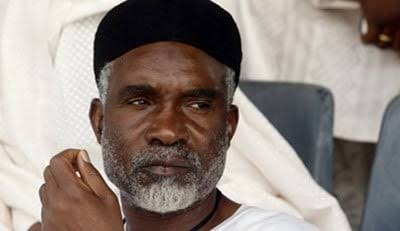The Court of Appeal on Tuesday ordered rtd Admiral Murtala Nyako, former governor of Adamawa to open his defence before Justice Okon Abang of the Federal High Court Abuja.
Abang had on July 19, 2021, ordered Nyako to enter defence in his on going trial.
Unsatisfied with the judgment of Justice Abang, which dismissed his no case submission, Nyako filed an appeal.
The EFCC charged Nyako, his son, two companies, Sebore Farms and Extension Ltd and Pagado Fortunes Ltd, with money laundering.
Other defendants are Zulkifik Abba, Abubakar Aliyu, Blue Opal Ltd, Tower Assets Management Ltd and Crust Energy Ltd.
Delivering judgment, a three-member panel chaired by Justice Olabisi Ige, held that the trial court order was right.
Ige held that the trial court was right in making an order for the defendants to enter defence in order to answer questions in respect of allegations against them by the prosecution.
Justice Ige held that he had no doubt in his mind that the trial court was right in asking the defendants to enter their defence.
The other panel members unanimously agreed that it was necessary for the appellants to exornerate themselves from the allegations linking them to commission of the alleged offences.
“None arraignment of others mentioned during the trial does not vitiate the charge as presented by the defendants.
“Appellant’s appeal is devoid of merit and the lower court was right in over ruling the no-case-submission filed by the appellant.
“The appellants are hereby ordered to enter their defence as ordered by Justice Abang of the Federal High Court Abuja” Ige held.
The News Agency of Nigeria (NAN) reports that EFCC on July 7,2015 filed the charge against the former governor and other the defendants.
The EFCC arraigned the defendants on a 37-count charge of criminal conspiracy, stealing, abuse of office and money laundering to the tune of N29 billion.
To prove it’s case at the Federal High Court Abuja, the EFCC called 21 witnesses, upon whose oral and documentary evidence, the court agreed that the prosecution has made a prima facie case against the defendants.
The Appellants predicated their various appeals on eight grounds.
Basically, the appellants had argued that the essential elements of offences against them were not proved by the prosecution.
More so, the appellants posited that there was no proof of theft, nor was there any evidence adduced by the prosecution to prove it’s case or linking them to commission of the offence levelled against them.
It was their argument that “Not a single witness called by the prosecution implicated the appellants.”








